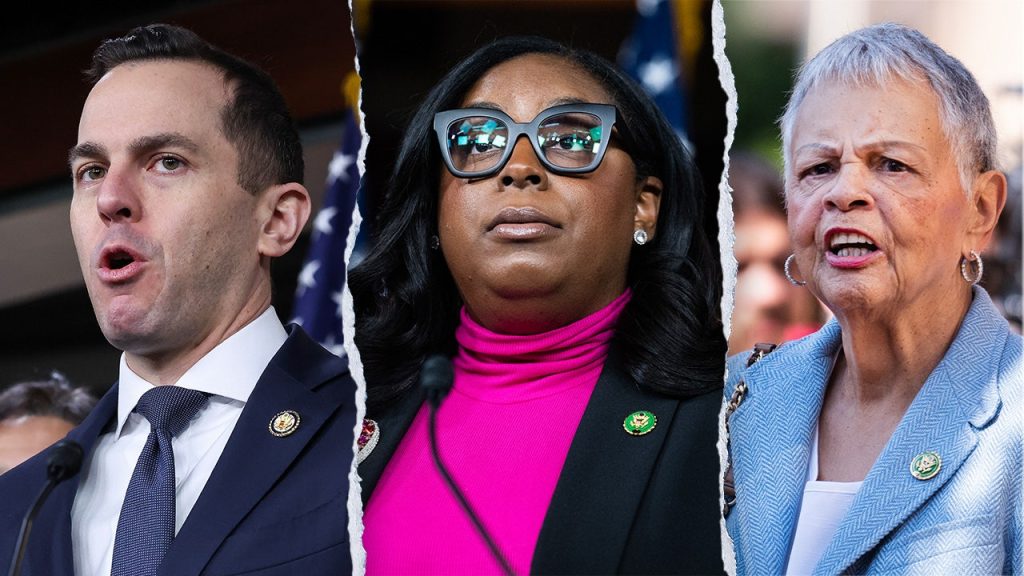The Department of Justice has officially charged Representative LaMonica McIver with assaulting two federal agents at the Delaney Hall Detention Facility last month. The charges stem from an incident where McIver, alongside two other New Jersey lawmakers, allegedly confronted authorities while attempting to intervene during an arrest. Bodycam footage claimed to document the event has led to serious accusations against the Democratic congresswoman, who vehemently refutes the charges, declaring them politically motivated.
| Article Subheadings |
|---|
| 1) Overview of the Incident |
| 2) The Charges Explained |
| 3) McIver’s Defense and Public Statement |
| 4) Reactions from Officials |
| 5) Implications for Legislative Oversight |
Overview of the Incident
On a day that was marked by rising tensions regarding immigration policies, LaMonica McIver and her colleagues visited the Delaney Hall Detention Facility in New Jersey, which houses ICE detainees. Documented actions included a confrontation with federal law enforcement agents as they attempted to arrest Ras Baraka, the Mayor of Newark. The incident escalated when McIver and her fellow lawmakers allegedly interfered with the agents’ attempts to detain Baraka, leading to accusations of assault against federal officers. The altercation was marked by assertions from both parties, raising the stakes regarding how officials are treated while performing their duties in high-pressure environments.
The Charges Explained
The Department of Justice’s charging documents detail serious allegations against McIver. Two counts of assault are cited, following claims that she “slammed her forearm into the body of a uniformed HSI agent” and “pushed an ICE officer & used her forearms to forcibly strike the agent.” The documents also note how she reportedly created a “human shield” to prevent agents from apprehending Baraka after he had been warned he would face arrest for trespassing. This dynamic sets a significant legal precedent, as future incidents could gravitate toward the extent to which lawmakers can exercise their oversight responsibilities without facing legal backlash.
McIver’s Defense and Public Statement
In response to the severe allegations, McIver has publicly rejected all charges, describing them as “purely political.” In a statement, she recounted a narrative where her congressional delegation aimed to inspect conditions for detainees, fulfilling what she referred to as “lawful oversight responsibilities.” McIver argues that the incident was mischaracterized, contending, “This administration will never stop me from working for the people in our district and standing up for what is right.” Her defense emphasizes the belief that deterrents to legislative oversight are detrimental to democracy and that her actions were protective rather than aggressive. McIver’s supporters have rallied around her claims, portraying her as a politician who is being persecuted for opposing prevailing governmental policies.
Reactions from Officials
The incident has not only drawn local attention but has also sparked significant reactions from various officials. Department of Homeland Security Secretary Kristi Noem issued a stark warning that no individual is above the law, irrespective of political standing. In her statement, she emphasized that anyone who assaults law enforcement officers would face consequences. Noem’s remarks underline the seriousness of the allegations against McIver and stress the need for accountability among public officials. The broader bi-partisan discussion surrounding the incident proposes questions regarding safety for all parties involved in confrontational settings, particularly when emotions run high due to immigration policies.
Implications for Legislative Oversight
This case represents a complex intersection of legal accountability and congressional oversight. Legislators are frequently faced with critical issues that may necessitate direct intervention, yet this incident raises questions about the limits of that intervention. How far can lawmakers go in protecting constituents without encroaching upon legal boundaries? Analysts suggest that if lawmakers are held criminally liable for actions taken during official duties, it could have a chilling effect on oversight activities. The implications extend beyond McIver’s charges, potentially reshaping how Congress interacts with federal agencies during times of significant civil unrest regarding immigration and law enforcement practices.
| No. | Key Points |
|---|---|
| 1 | Representative LaMonica McIver faces serious assault charges related to an ICE facility incident. |
| 2 | The Department of Justice’s documents detail claims of physical altercations with federal agents. |
| 3 | McIver asserts the charges are politically motivated and counter her oversight duties. |
| 4 | Secretary Kristi Noem emphasizes that no one is above the law during a response to the incident. |
| 5 | The legal case may have broader implications for how lawmakers engage in oversight of federal actions. |
Summary
The confrontation involving Rep. LaMonica McIver and federal agents illustrates the complicated relationship between legislative oversight and law enforcement operations. As allegations unfold, the political ramifications of this incident may reverberate through congressional procedures and create heightened scrutiny of the ways in which lawmakers can act in protective capacities. Ultimately, this case exemplifies the greater tensions surrounding immigration enforcement policies in the current political climate.
Frequently Asked Questions
Question: What charges are being brought against Rep. McIver?
Rep. McIver faces charges of assaulting two federal agents during an incident at the Delaney Hall Detention Facility, including claims of physically obstructing arrests.
Question: How has McIver responded to the accusations?
McIver has publicly rejected the charges as politically motivated and insists that her actions were in line with her responsibilities to oversee conditions for detainees.
Question: What are the potential implications of this case?
The case may influence how Congress interacts with federal agencies in the future, raising questions about the legality and limits of legislative oversight in contentious situations.
